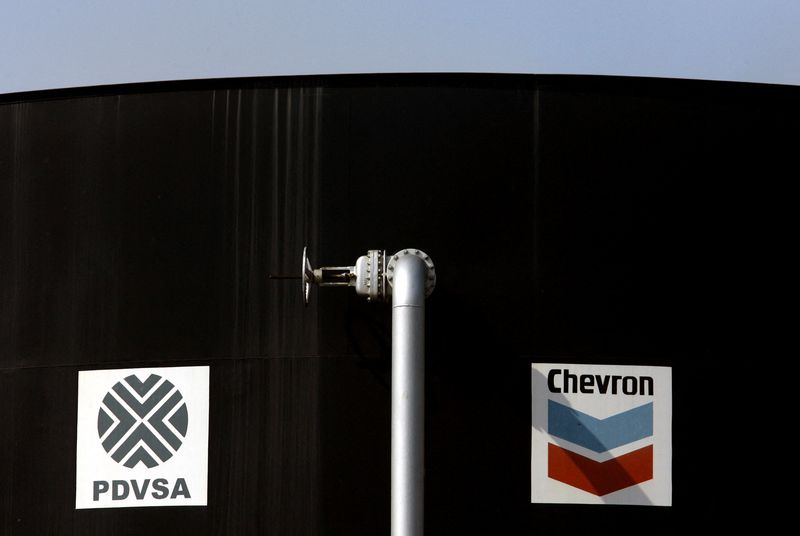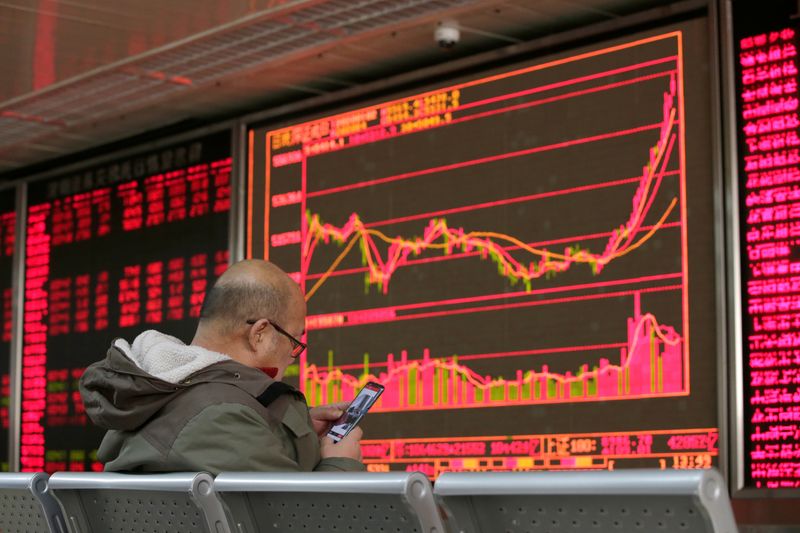By Marianna Parraga and Mircely Guanipa
HOUSTON/MARACAY (Reuters) – Venezuela’s August oil exports hit their highest in more than four years, according to shipping data, fueled by expanded shipments to China, the U.S. and Europe as the risk of fresh U.S. sanctions grew amid an electoral dispute.
The U.S. Treasury Department last year granted a broad license allowing Venezuela to freely export its oil, easing sanctions imposed by the Trump administration since 2019. The authorization was not renewed in April, but individual energy licenses have been issued since.
State oil company PDVSA and joint ventures with U.S. oil firm Chevron (NYSE:CVX) and Spain’s Repsol (OTC:REPYY) exported an average of almost 885,000 barrels per day (bpd) of crude and fuel in August, data based on tanker movements showed.
That was 50% above the previous month and 62% more than in the same month of 2023, according to the data.
A dispute over Venezuela’s July presidential election has driven the OPEC-member country to another political crisis, with incumbent President Nicolas Maduro and opposition leader Edmundo Gonzalez claiming victory.
Washington has threatened new sanctions if Maduro’s government continues on what the U.S. has described as a path to isolation and political persecution.
ENERGY CHIEF SHAKE UP
Maduro in August reshuffled his cabinet, reassigning oil minister Pedro Tellechea, who was also PDVSA’s CEO, to industry minister, while appointing Vice President Delcy Rodriguez as oil minister and promoting PDVSA’s Vice President Hector Obregon to CEO.
Maduro and Rodriguez also appointed new vice ministers and PDVSA board members this week.
A total of 51 cargoes carrying Venezuelan crude, fuel, oil byproducts and petrochemicals departed from the country’s waters last month with Asia again as the main destination, followed by the U.S., Europe and Cuba.
Chevron’s crude exports to its U.S. refineries and other customers reached 227,000 bpd, the second highest monthly average this year, while Repsol shipped some 86,000 bpd to the U.S. and Europe, below July’s 102,000 bpd, according to the data.
Spain’s imports of Venezuelan oil this year have already topped 2023’s total, data released this week by an arm of the Spanish Energy and Environment Ministry showed.

Chevron, Repsol and other foreign energy firms have expanded business in Venezuela in recent years under U.S. authorizations. Washington last month said it did not plan to withdraw the licenses, but it has not recently referred to the topic.
Venezuela also exported 589,000 metric tons of oil byproducts and petrochemicals, above July’s 266,000 tons. The country’s fuel imports rose to some 90,000 bpd from 59,000 bpd in July, the data showed.










